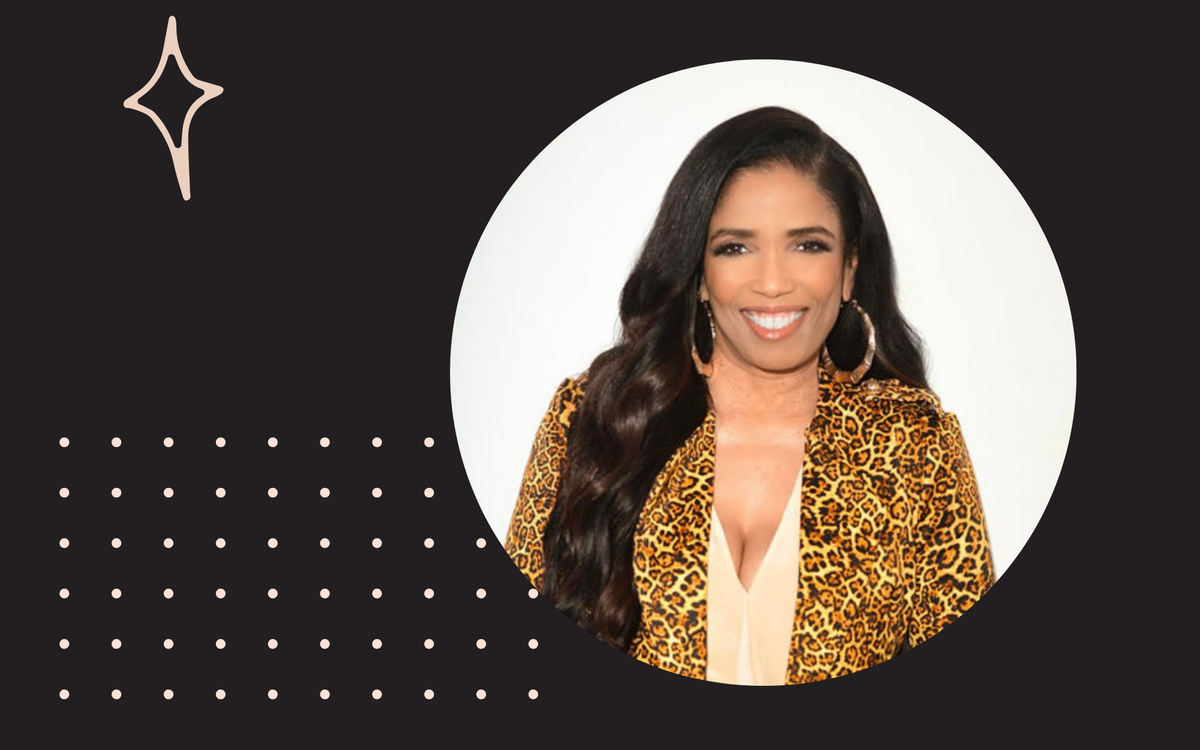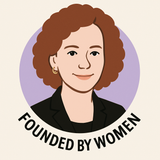From Courtroom to Community: How Civil Rights Attorney Areva Martin Builds Legal Frameworks for Female Entrepreneurs Who Lead with Purpose

When Areva Martin walked across the stage at Harvard Law School, she carried with her the dreams of a community that had invested in her success and the determination to use her legal expertise as a force for systemic change. Today, as the founding principal of Martin & Martin LLP—one of Los Angeles' premier African American female-owned law firms—and a California Super Lawyer for five consecutive years, she has built a practice that goes far beyond traditional legal services.
Known as "America's Advocate" for her unflinching commentary on pressing legal and social justice issues, Areva has become a household name through her work as a CNN contributor, talk show host, and legal analyst on high-profile cases ranging from police shootings to #MeToo litigation. Her media presence spans everything from co-hosting the Emmy Award-winning daytime talk show "The Doctors" to her primetime radio show "Areva Martin in Real Time" on KBLA Talk Radio.
But perhaps her most groundbreaking work happens away from the cameras, in courtrooms and communities where she's fighting for what she calls "modern-day Emmett Tills"—those who have been beaten, battered, silenced, and shortchanged by systems of power. Her firm recently took on a landmark reparative justice case representing over 1,000 plaintiffs in Palm Springs, California, seeking justice for Black and Latino families who were burned out of their homes in the 1960s by the city in what California's Attorney General described as a "city-engineered holocaust."
As both a successful entrepreneur and social justice advocate, Areva embodies a new model of business leadership—one that proves you don't have to choose between building wealth and advancing justice. Through her law firm and her founding of the Special Needs Network (sparked by her son's autism diagnosis), she has created a blueprint for how female entrepreneurs can structure their companies to generate financial success while creating meaningful social impact.
In this candid conversation, Areva shares the legal frameworks that every female founder should implement from day one, how to navigate the intersection of media attention and legal risk, and the strategic approaches that allow entrepreneurs to build generational wealth while staying true to their values and communities.
Her insights offer both practical legal guidance and a powerful reminder that the most sustainable businesses are those rooted in purpose, community, and a commitment to justice that extends far beyond the bottom line.
1. Civil Rights and Employment Discrimination Protection for Growing Companies
As a Harvard Law School graduate and California Super Lawyer who has been recognized as one of Los Angeles' premier African American female-owned law firm leaders, you've built a practice focused on civil rights, employment discrimination, and ADA compliance. For female entrepreneurs building diverse teams and inclusive workplaces, what are the essential civil rights protections they should implement from day one? How can founders create anti-discrimination policies and workplace cultures that protect both their businesses and employees, especially when dealing with issues around disability accommodation, harassment, and equal opportunity?
That’s a great and timely question — especially as more women, and particularly women of color, step into leadership roles and launch their own companies. From day one, founders should view civil rights and employment protections not as legal boxes to check, but as the foundation of a healthy, sustainable workplace culture.
First, it’s essential to build compliance into your infrastructure early. That means developing clear, written policies that prohibit discrimination and harassment based on race, gender, disability, age, religion, or any other protected category. These policies should be communicated to all employees — not buried in an HR manual that no one reads — and reinforced through training and leadership modeling.
Second, every business needs a strong ADA (Americans with Disabilities Act) framework. That includes not just physical accommodations, but also flexibility in scheduling, remote work, and technology access for employees with disabilities. Founders should foster a culture where employees feel safe requesting accommodations without fear of retaliation or stigma.
Third, respond promptly and transparently to complaints. Many small businesses get into legal trouble not because of the original incident, but because of how they handle it — or fail to handle it. Create a clear reporting structure, ensure confidentiality, and follow through on investigations with fairness and consistency.
Finally, think beyond compliance. The most successful companies weave equity and inclusion into their values and everyday operations — from hiring practices to mentorship and promotion opportunities. When employees feel respected, heard, and supported, you not only reduce legal risk, you build loyalty, innovation, and trust.In short, protecting your business and your employees go hand in hand. Building a culture of respect, accountability, and access from the start isn’t just the right thing to do — it’s smart business.
2. Media, Public Relations, and Legal Risk Management for High-Profile Entrepreneurs
With your extensive media experience as a CNN contributor, talk show host, and legal commentator on high-profile cases including #MeToo and police shooting cases, you understand the intersection of legal strategy and public perception. For female founders who may face public scrutiny or media attention, what legal considerations should they address when building their public presence? How can they protect themselves from defamation, manage crisis communications legally, and structure their businesses to handle potential media controversies while maintaining their reputational and legal integrity?
That’s an excellent question — and one that every founder, especially women in the public eye, should take seriously. In today’s media environment, perception often moves faster than fact, and a single headline can shape a brand overnight. For female founders, the key is to build a proactive legal and communications framework before a crisis ever hits.
First, understand that your brand and your legal risk are intertwined. From day one, entrepreneurs should ensure their business entity — whether an LLC or corporation — is properly structured to separate personal and professional liability. This protects your personal assets if your company faces legal or reputational challenges.
Second, invest in a defamation-aware media strategy. The best protection against misinformation is truth, documentation, and consistency. Avoid making public statements — especially on social media — that could be construed as defamatory or breach confidentiality agreements. When others make false claims about you or your business, consult legal counsel before responding publicly. Often, a carefully worded statement, a cease-and-desist letter, or even silence can be more strategic than engaging emotionally.
Third, crisis communications should always align with legal strategy. Too often, businesses react from emotion or public pressure, creating liability in the process. Work with an attorney and a PR professional in tandem — not in silos — to ensure that every public message protects both your reputation and your legal standing.
Finally, remember that the best crisis management is prevention. Develop clear internal policies around social media use, non-disclosure, and employee communications. Educate your team on how to handle media inquiries and what not to say online.As someone who’s worked on both sides — in the courtroom and in front of the camera — I always tell my clients: control your narrative before someone else does. Being transparent, prepared, and legally grounded allows you to not only survive public scrutiny but lead with confidence and integrity when the spotlight inevitably finds you.
3. Building Generational Wealth While Advocating for Social Justice
You've successfully built Martin & Martin LLP into a premier law firm while also founding the Special Needs Network and advocating for systemic change through cases like the Palm Springs Section 14 reparative justice lawsuit. For female entrepreneurs who want to build profitable businesses while creating social impact, how can they structure their companies to generate wealth while maintaining their values? What legal structures and business strategies allow founders to pursue both financial success and meaningful advocacy work, and how can they protect their mission-driven initiatives legally and financially?
1. Choose the right legal and financial structure.
The first step is deciding what kind of entity aligns with both your mission and your goals. Traditional for-profit corporations can still advance social causes — but for some founders, a benefit corporation (B-Corp) or social enterprise LLC offers a better fit because it legally embeds social purpose into the company’s DNA. This ensures your mission survives leadership changes, investor pressure, and even ownership transitions.
2. Separate, but align, your mission-driven and business arms.
Many successful entrepreneurs — myself included — create separate entities for their advocacy or nonprofit work. My law firm, Martin & Martin LLP, was instrumental in the early years of building the foundation for my nonprofit. The firm provided financial support, legal advice, and business consulting as the Special Needs Network began to take off. This model allowed me to pursue systemic change and community impact while maintaining a sustainable business. The key is to maintain proper boundaries, clear accounting, and transparent governance so that both entities strengthen — rather than complicate — each other.
3. Build partnerships that align profit with purpose.
No one creates generational wealth alone. Partner with corporations, philanthropic organizations, and government agencies that share your values. Those collaborations can open doors to contracts, grants, and media exposure that advance both your financial and social impact goals.
4. Protect your mission legally.
If you’re running a mission-driven business, your intellectual property — your brand, message, and programs — are among your most valuable assets. Trademark your brand, copyright your content, and use strong contracts that protect your ideas and values. Also, consider succession planning — create legal structures that ensure your mission lives beyond you.
5. Think long-term and generationally.
True wealth-building isn’t just about money; it’s about ownership, legacy, and empowerment. Invest in assets — property, equity, intellectual property — that appreciate over time. And pass along both the financial and intellectual capital: teach the next generation about leadership, advocacy, and business so they can continue the work.
Ultimately, the most powerful model of entrepreneurship is one rooted in purpose. When your business reflects your values and your community, profit becomes not just personal success, but a tool for collective progress.



